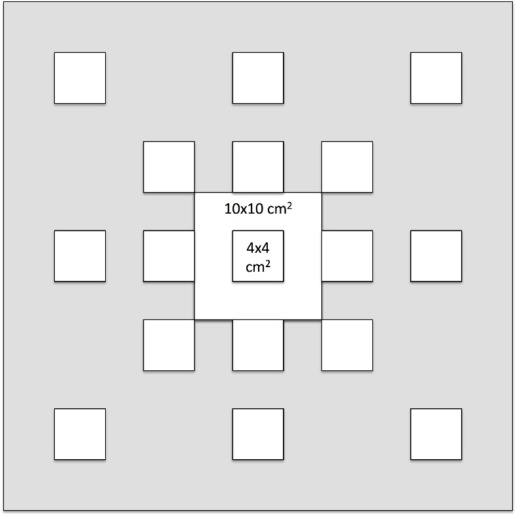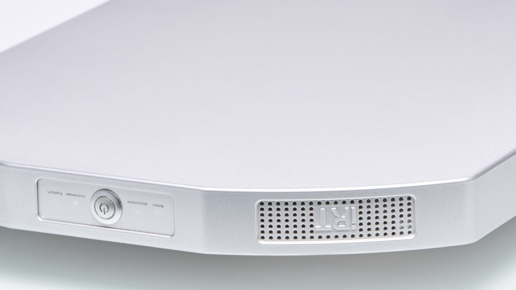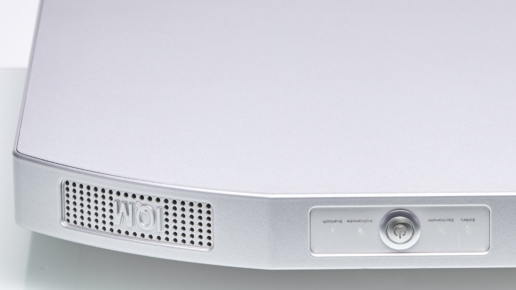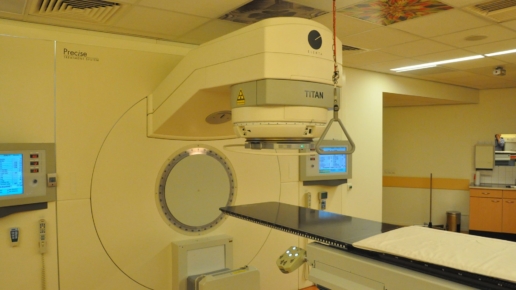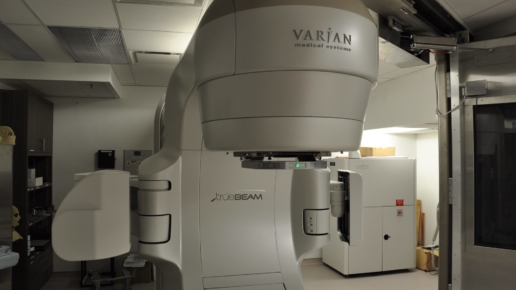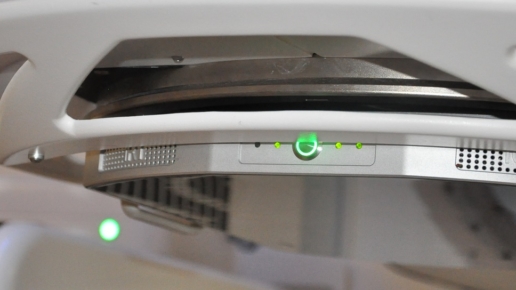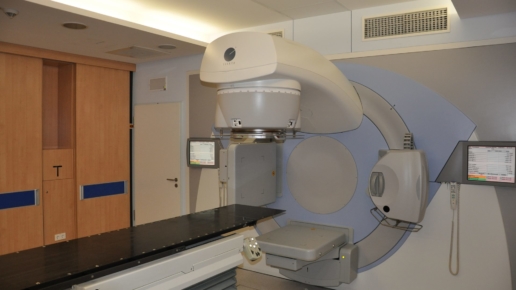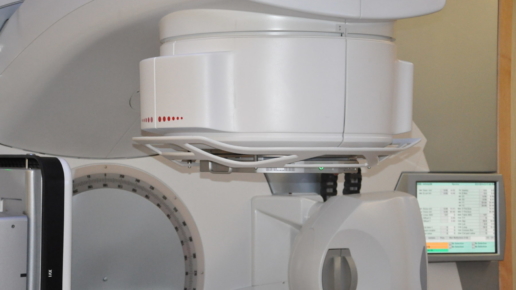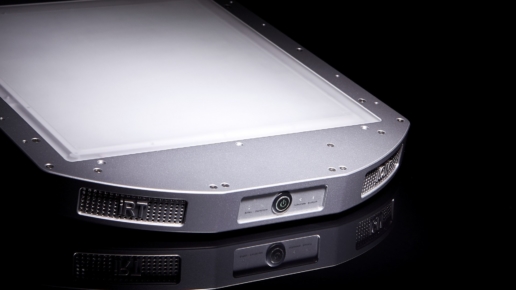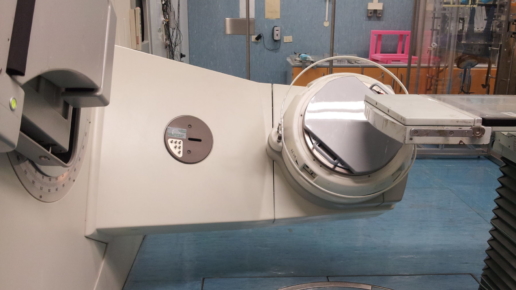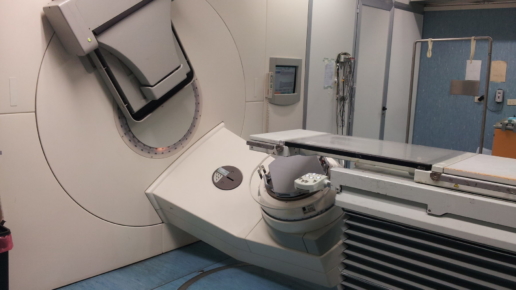Test purpose
The aim of this multi-centre study was to test the ability of the system to detect small delivery errors in IMRT plans. This initial test in the study evaluated the short-term and long-term reproducibility of IQM measurements, because the research team considered strong reproducibility a basic requirement for any further analysis.
Test method
The short-term reproducibility was verified by delivering a test plan 15 consecutive times, over approximately 2 hours. The test field is a 6MV IMRT treatment field (treatment A) composed of 18 segments (17 4x4cm2 and one 10×10 cm2 field) (see figure 1). The output signal was analyzed segment by segment (local reproducibility) and for the entire field (global reproducibility).
The long-term detector reproducibility was evaluated by delivering three 6MV IMRT plans (A, B and C) at least 72 times each over a period of 30 days. Plans B and C are clinical plans for H&N and prostate treatment, respectively.
Test results
The signal short-term reproducibility is well within 1% (0.08% global, 0.15% local); the signal long-term reproducibility is within 1% for all beams. The detector was found to be highly reproducible, thus allowing small uncertainty levels on detector readings.
Conclusion
This test demonstrated the IQM system’s high short-term and long-term reproducibility. The larger multi-centre study found that the IQM system is capable of detecting small delivery errors in MU and leaf positions and shows a high sensitivity for clinical practice.
This test report is based on a publication created by Careggi University Hospital Florence (Italy).
Please click on the „More information“ link to access the publication website.
